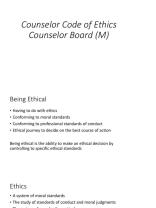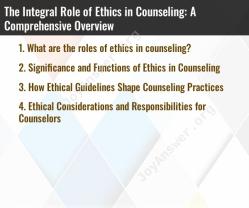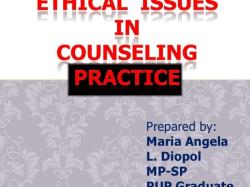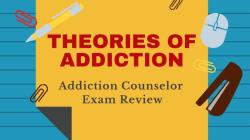How do I become a certified addiction counselor?
The process of becoming a certified addiction counselor can vary depending on your location and the specific certification board or organization overseeing addiction counseling certifications. Below are general steps that may be involved in the certification process:
Educational Requirements:
- Obtain the necessary education. Most certification boards require a minimum level of education, often a bachelor's or master's degree in a related field such as psychology, counseling, social work, or a closely related discipline.
Gain Relevant Experience:
- Many certification boards require candidates to accumulate a certain number of supervised clinical or counseling hours specific to addiction counseling. This experience is typically gained through internships, practicums, or supervised work in addiction treatment settings.
Complete Required Training:
- Participate in specific training programs or workshops related to addiction counseling. Some certification boards may have specific training requirements that cover topics such as counseling techniques, treatment modalities, and ethical considerations in addiction counseling.
Meet Specific Competency Standards:
- Demonstrate competence in the core areas of addiction counseling, which may include understanding the biology of addiction, assessment and treatment planning, individual and group counseling techniques, legal and ethical issues, and cultural competence.
Obtain Supervision:
- Complete any required supervision hours under the guidance of a qualified supervisor. Supervision is often a critical component of the certification process and ensures that candidates receive guidance and feedback on their counseling skills.
Apply for Certification:
- Submit an application for certification to the relevant certification board or organization. The application will typically require documentation of your education, experience, and training. Be prepared to provide transcripts, verification of supervised hours, and any other required documentation.
Pass a Certification Exam:
- Some certification boards require candidates to pass a written examination to demonstrate their knowledge and competency in addiction counseling. Prepare for the exam by reviewing the relevant materials and resources recommended by the certification board.
Maintain Certification:
- Once certified, you may need to fulfill ongoing requirements for maintaining your certification. This may include completing continuing education credits, participating in professional development activities, and adhering to ethical standards.
Optional Specialization:
- Consider pursuing additional certifications or specializations within the field of addiction counseling. Some organizations offer specialized certifications in areas such as co-occurring disorders, prevention, or specific treatment modalities.
It's important to note that the certification process can vary by region, and different certification boards may have different requirements. Therefore, it's advisable to check with the specific certification board or organization in your area to get accurate and up-to-date information on the certification process for addiction counselors. Additionally, joining professional organizations related to addiction counseling can provide valuable resources and networking opportunities in the field.
What steps are involved in becoming a certified addiction counselor?
Becoming a Certified Addiction Counselor
Becoming a certified addiction counselor is a rewarding career path that involves dedication to helping individuals overcome substance abuse and mental health challenges. Here are the steps involved:
1. Education
Earn a bachelor's degree: A bachelor's degree in counseling, psychology, social work, or a related field is generally required. Some programs offer specific concentrations in addiction studies.
Master's degree (optional): While not always mandatory, a master's degree in counseling or a related field can deepen your knowledge and enhance career prospects.
2. Supervised Clinical Experience
- Gain practical experience: Complete a supervised clinical experience (SCE) program, typically requiring 2,000-4,000 hours of working directly with clients under the guidance of a licensed professional.
3. Licensure and Certification
Pass NADAAC's National Counselor Exam (NCE): This national examination assesses your knowledge and skills in addiction counseling.
Meet state licensing requirements: Each state has its own licensing requirements, which may include additional exams, criminal background checks, and references.
4. Continuing Education
- Stay current: Maintain your certification by completing continuing education (CE) courses periodically, as mandated by your licensing body.
Additional factors to consider:
Professional associations: Joining professional organizations like the National Board for Certified Counselors (NBCC) or the National Association of Addiction Counselors (NAADAC) can provide networking opportunities, resources, and professional development opportunities.
Specialization: You can further specialize in areas like trauma-informed care, family therapy, or substance-specific treatment.
Remember: The road to becoming a certified addiction counselor requires commitment and perseverance, but the rewards of helping individuals overcome addiction and lead fulfilling lives can be immensely fulfilling.
Here are some additional resources that you may find helpful:
National Board for Certified Counselors (NBCC): https://www.nbcc.org/: https://www.nbcc.org/
National Association of Addiction Counselors (NAADAC): https://www.naadac.org/: https://www.naadac.org/
Substance Abuse and Mental Health Services Administration (SAMHSA): https://www.samhsa.gov/: https://www.samhsa.gov/
I hope this information helps you on your journey to becoming a certified addiction counselor!






